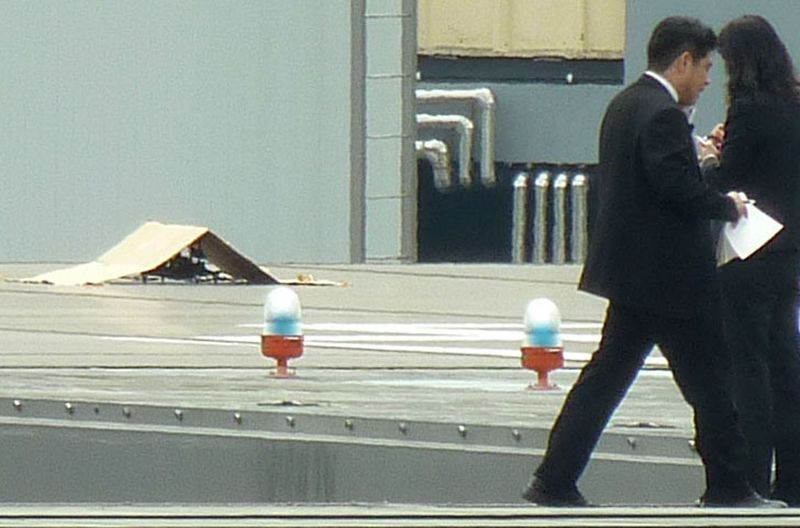TOKYO (Reuters) - A drone marked with a radioactive sign was found on the roof of Japanese Prime Minister Shinzo Abe's office on Wednesday and media said it tested positive for a "minuscule" amount of radiation.
The radiation was so low it was not harmful to humans, media quoted police as saying.
Public broadcaster NHK said the bomb squad was called in to take away the drone, which was carrying a small camera and a water bottle.
Police would investigate, government spokesman Yoshihide Suga said, adding that the country may need to consider regulating the devices.
"This situation concerns the centre of Japanese government, the prime minister's office, and we will take every necessary step, including a detailed investigation by police," said Suga, noting how Japan had began studying the issue after a drone landed in the White House grounds in January.
Suga declined to comment further.
Abe was in Indonesia on Wednesday attending an Asia-Africa summit. An official at the prime minister's office declined to comment.
It was not immediately clear who sent the drone or why. But a Japanese court on Wednesday approved the restart of a nuclear power station in the southwest of the country, rejecting worries about nuclear safety in the wake of the 2011 Fukushima radiation disaster.
The ruling was a boost for Abe, who wants to reboot nuclear power to help cut reliance on expensive fossil fuel imports.
Televised aerial footage from the prime minister's office showed the drone with propellers covered under cardboard and later a blue tarp.
Broadcaster NHK said an official at the premier's office found the drone and that the device was around 50 cm (20 ins) in diameter. No-one was injured.
Japan, which has a proven track record in electronics and robotics, is looking to fast track industry-friendly regulation to give its drone sector an edge over the United States.
The government is considering the Fukushima nuclear plant, wrecked by the 2011 earthquake and tsunami, as a test ground for robots and drones.

A Japanese company is planning to mass produce six-propeller drones that could survey radiation levels and help with the government's decommissioning effort, media have said.